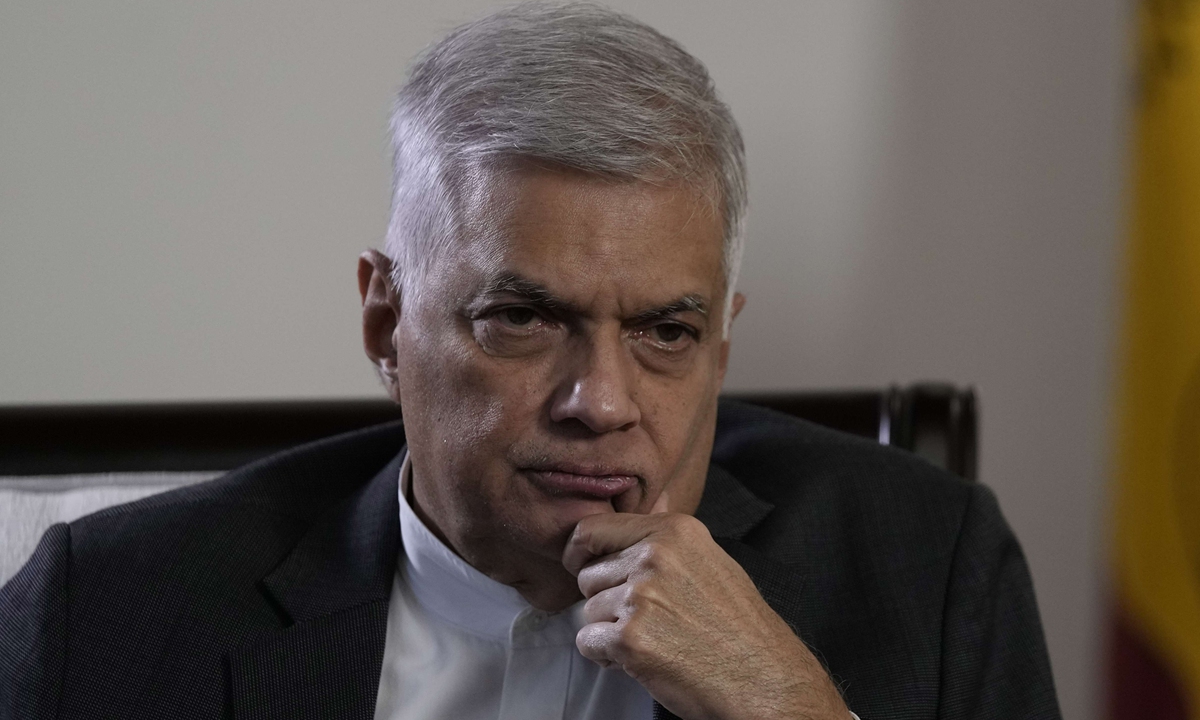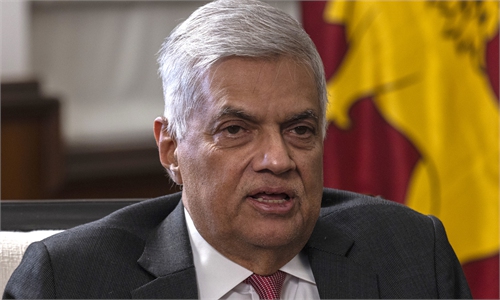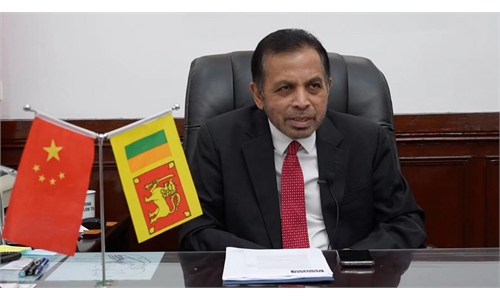Sri Lanka's acting president voted as new president, to carry on negotiations with IMF, other intl lenders

Ranil Wickremesinghe, Sri Lanka's newly elected president Photo: VCG
Acting Sri Lankan president Ranil Wickremesinghe was elected president in a parliamentary vote on Wednesday and he is expected to take charge of the bankrupt country to overcome the acute shortages of food, fuel and other basic supplies and resume negotiations for a bailout with the International Monetary Fund (IMF).Wickremesinghe is a seasoned senior politician, and observers believe his past experience will help him better handle Sri Lanka's domestic turmoil, negotiate with international lenders and push the country back to a normal track.
Wickremesinghe secured 134 of the 219 valid votes while his main rival Dullas Alahapperuma, former education minister who is being supported by the opposition, secured 82 votes.
Wickremesinghe, in his address to the parliament, called for unity to "embark on a way forward." The six-time prime minister called on the other candidates, as well as the opposition, to work together to address the country's crisis, Al Jazeera reported on Wednesday.
Zhou Rong, a senior research fellow at the Chongyang Institute for Financial Studies at the Renmin University of China, told the Global Times on Wednesday that although Wickremesinghe has a close relationship with former president Gotabaya Rajapaksa, the new president does not belong to any strong political family in Sri Lanka, which gives him room to communicate with different parties, including the opposition, to find a way out for the nation.
It remains to be seen whom Wickremesinghe would nominate as prime minister, where a compromise could be made with the opposition, the expert said.
Wickremesinghe has also recently negotiated with the IMF over a bailout Sri Lanka needs urgently, and enjoys a working relationship with key donor countries, the New Delhi-headquartered News18 reported on Wednesday.
A stable government will help accelerate negotiations and revitalize the economy at an early date, observers said.
Zhou noted the new Sri Lankan government needs to ease the domestic shortage of supplies, food and fuel in particular, to calm the public and restore social order.
International aid arriving in batches is far from enough to help Sri Lanka out of the predicament as the country needs to fish itself rather than receiving fish, Zhou said. When the social unrest is put under control, Sri Lanka can seek help from bilateral partners to build a healthier economic structure, he said.
To help Sri Lanka out, China, as a friendly neighbor, can play a role not only in rescheduling the loans, which the two sides are discussing, but also in helping coordinate Sri Lanka's negotiations with other lenders and restructuring its debts, Zhou said.
In a recent exclusive interview with the Global Times, Sri Lanka Ambassador to China Palitha Kohona underlined that China's practical humanitarian assistance has been "very helpful" and expressed hopes for China's greater role in sustainable recovery of his country.


